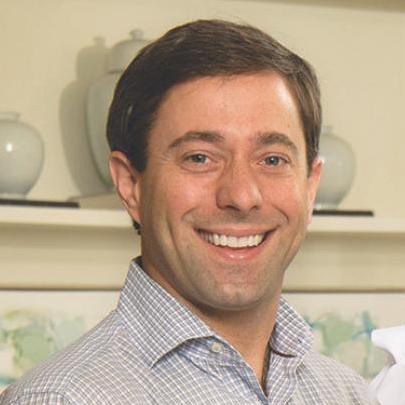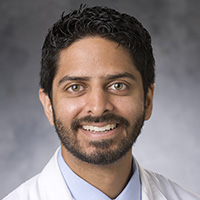As the only National Cancer Institute-Designated Comprehensive Cancer Center in Georgia, Winship is a leader in the treatment of esophageal cancer. Our staff conduct innovative research and clinical trials that transform how these cancers are identified, treated, and survived.
The radiation oncologists at Emory Proton Therapy Center work with the multidisciplinary Esophageal cancer team at Winship, which includes experts in thoracic surgery, surgical oncology, gastroenterology, medical oncology, radiology, pathology, supportive oncology, dieticians, social workers, physical therapy, and cancer rehabilitation. Your esophageal radiation oncologist will work closely with these and other specialists to customize your esophageal cancer treatment plan and coordinate your care. We can also partner and coordinate with a patient’s existing care team, whether they are across town or around the world.
Proton Therapy for Esophageal Cancer
An esophageal cancer diagnosis can be one of the biggest challenges you and your family will ever face. Our team is dedicated to helping you meet that challenge through supportive care using the most advanced esophageal cancer treatments available. As a newer type of approach, Proton therapy may be a more precise radiation option for treatment of your cancer to help protect nearby organs like the heart and lungs. Our esophageal cancer specialists will work with you to develop a personalized treatment plan that aims for fewer side effects and improved quality of life.
What We Treat
- Esophageal adenocarcinoma
- Esophageal squamous cell carcinoma
- Gastroesophageal (GE junction) cancer
- Re-irradiation
Benefits of Proton Therapy
In treatment of esophageal cancers, proton therapy can reduce or avoid radiation to surrounding healthy tissue and organs.
Depending on the tumor location and type, proton therapy may achieve the following benefits:
- Reduced risk of inflammation of the heart (pericarditis) and future heart problems like hardening of the arteries (atherosclerosis), stiffening of the heart muscle (fibrosis, cardiomyopathy), and heart attacks.
- Reduced risk of inflammation of the lungs (radiation pneumonitis), and problems with lung function (lung fibrosis).
- Reduced risk of nausea and diarrhea.
- Reduced radiation to the bone marrow and circulating lymphocytes, which may help support the function of the immune system in fighting cancer.
- Reduced risk of low blood counts (anemia, neutropenia) which may support the body’s tolerance of chemotherapy.
- Reduced risk of developing a future second tumor or cancer, which is most relevant in younger patients, those with a good prognosis and a long life expectancy, and those patients who may have genetic conditions putting them at higher risk for developing other cancers.
Schedule a Consultation
What to Expect With Proton Therapy
The first step in your care is a consultation. During consultation, we review your medical history, perform a physical exam, decide if any additional tests are needed, discuss all radiation options that may be appropriate for your treatment plan, make recommendations, and answer questions.
To plan your treatment, you will undergo a “simulation” or planning session. During this visit our radiation therapists will help position you the way you will be treated each day. A CT scan will be done to create a picture of you in the treatment position to design your radiation plan. It normally takes 10 days for the team to design the proton treatment plan and perform the quality assurance checks before treatment begins.
Proton therapy is typically delivered once daily during weekdays, Monday through Friday. Most patients with esophageal cancer receive five to six weeks of daily radiation with weekly chemotherapy, followed by surgery for those who are candidates for surgery. While some situations are treated with radiation alone, proton therapy is often integrated with surgery, chemotherapy, immunotherapy, or other cancer treatments as part of a comprehensive plan of care.
Like other types of radiation, proton therapy treatments are invisible and painless. Most esophageal cancer treatments average 30 minutes each day in the treatment room.
Patients are seen by the radiation oncology physician team weekly during treatment to monitor progress, answer questions, address concerns, and manage any side effects from treatment. Your radiation oncologist will discuss a plan to assess response to treatment and for long-term follow-up after therapy.
Studies on Proton Therapy in Esophageal Cancer
Our team has identified these studies as examples of the clinical benefits of proton therapy in esophageal cancer.
Randomized Phase IIB Trial of Proton Beam Therapy Versus Intensity-Modulated Radiation Therapy for Locally Advanced Esophageal Cancer
In this randomized phase II clinical trial, patients with esophageal cancer were randomly (flip of the coin) assigned to receive either x-ray or proton radiation delivered together with chemotherapy, followed by surgery in operable patients. Compared to those treated with IMRT, patients treated with proton therapy had statistically, significantly fewer toxicities and fewer postoperative complications. The main reductions were in heart and lung side effects. In addition, patients treated with proton therapy were less likely to develop a severe lymphopenia (depletion of immune cells) which was correlated with the reduced radiation dose to the normal brain. There was no difference seen in this study in progression-free or overall survival rates, but severe lymphopenia has been associated with reduced overall survival, increased risk of recurrence, and reduced response rates in many cancers.
Comparative Effectiveness of Proton vs Photon Therapy as Part of Concurrent Chemoradiotherapy for Locally Advanced Cancer
This retrospective study examined nearly 1500 patients receiving chemotherapy and radiation for curable cancers of different disease sites, including esophageal cancers. A technique called propensity score weighting was used to account for differences in patient characteristics (patients treated with proton therapy tended to be older and to have a greater number of other serious health problems) and to minimize selection bias. Patients treated with proton therapy were significantly less likely to have a serious side effect in the first 90 days after treatment, and less often experienced a decline in their overall condition (performance status) during treatment. Patients treated with proton therapy were less likely to have an unplanned hospitalization.
Second Cancer Risk After Primary Cancer Treatment with Three-Dimensional Conformal, Intensity-Modulated, or Proton Beam Radiation Therapy
This study used the National Cancer Data Base (NCDB) to examine the frequency of developing a second cancer following radiation treatment for 9 different tumor types – including gastrointestinal cancers – in 450,373 patients treated with x-rays or proton therapy. After adjusting for differences in patient age, follow-up duration, radiotherapy dose, use of chemotherapy, sociodemographic differences, and other factors, patients treated with proton therapy had a statistically significantly lower risk of developing a secondary cancer than those treated with x-ray therapy. This significant reduction in risk was seen despite the average follow-up time after radiation being only 5 years. The risk of secondary cancers increases with longer follow-up time after radiation, and it is encouraging to see this signal of reduced risk with proton therapy at an early point.
Patient Stories
“I’ve been through it, and I can’t say enough about the amazing care I received. The team who handled my treatments was absolutely wonderful, making a difficult time so much easier to navigate.”

My experience at Emory was incredible—it was as easy as drinking water! The therapy sessions only took about 5 to 10 minutes, and right after, I’d go for a 4-mile walk every single day. I had no side effects whatsoever—I can’t even tell that I had the treatment. Emory truly saved my life, and I couldn’t be more grateful.

Stephen, a 36-year old father from Columbus, Georgia, is one of the almost 2000 patients who have been treated at the Emory Proton Therapy Center since it opened in December 2018. He completed six weeks of proton therapy to treat a brain tumor.

“I went through 37 treatments for prostate cancer at the Emory Proton Center two years ago. The care I received from their team of professionals was amazing. I was willing to travel from South Carolina for treatment, and I’m so thankful I did. I started this fight in 2017 and today my PSA is still undetectable. Truly amazing folks.”

Proton therapy gave Zack his best shot at treating a spinal tumor that had come back. Zack was one of the first patients treated at the Emory Proton Therapy Center after it opened in 2018. The treatments, every weekday for six weeks, took less than one hour of his day and gave Zack the greatest odds of a long life with his wife and children.

Tony was diagnosed with prostate cancer in 2019 and sought care from experts at Emory Proton Therapy Center. He’s confident that the advanced radiation therapy gave him the best cancer treatment possible and says the comfort and care he got from Winship doctors and staff were unmatched. “There were many great solutions here in Atlanta, but the best to me was Emory Proton Therapy Center,” says Tony.




